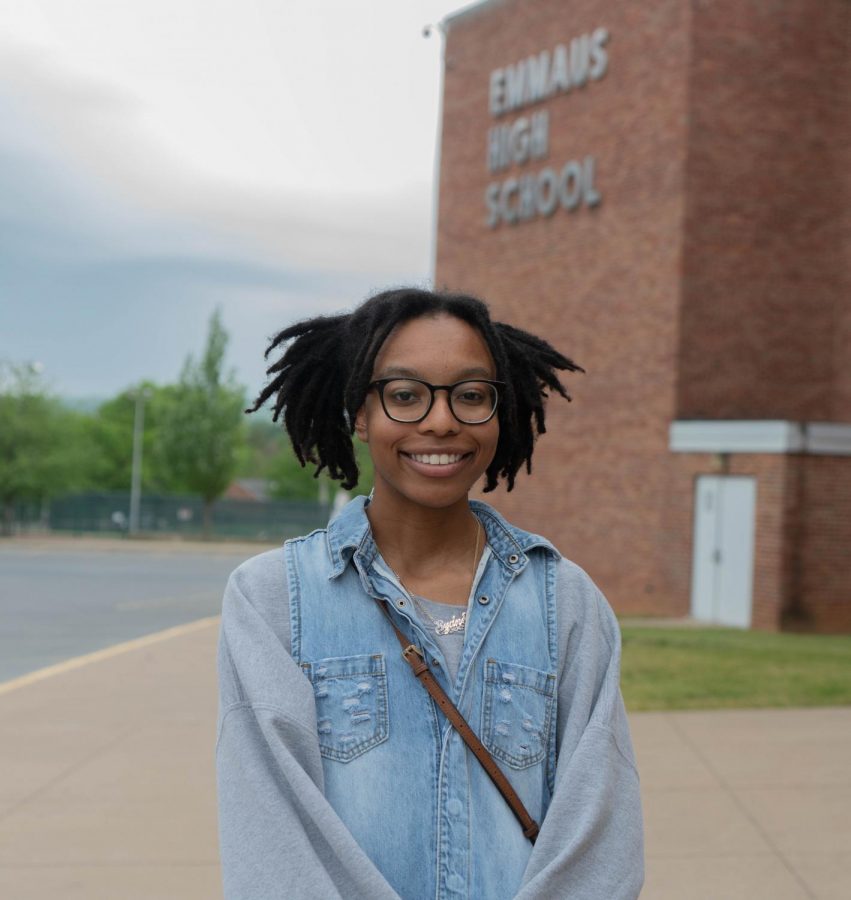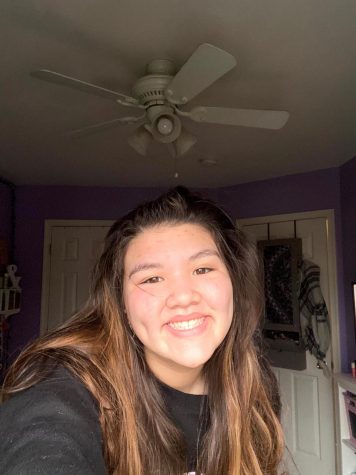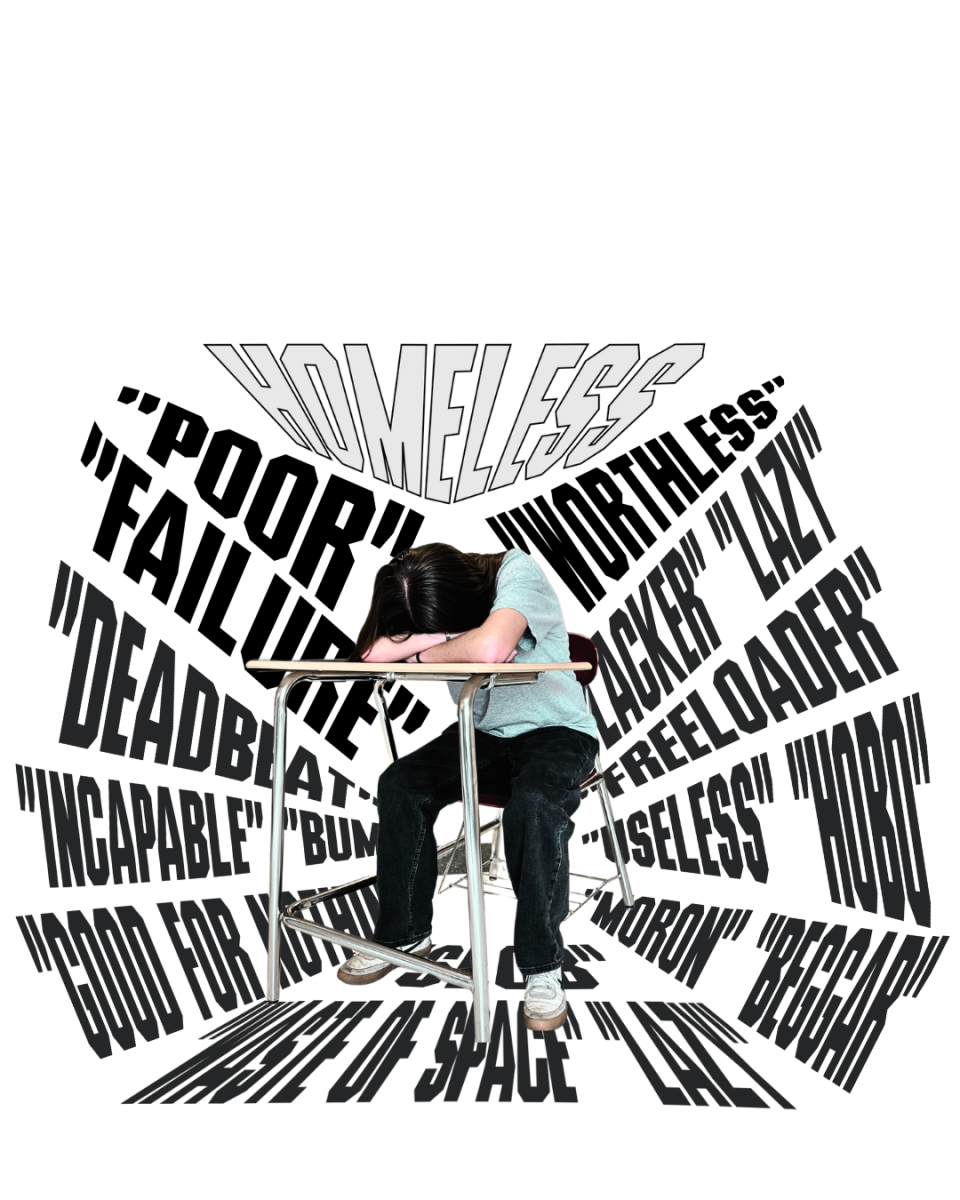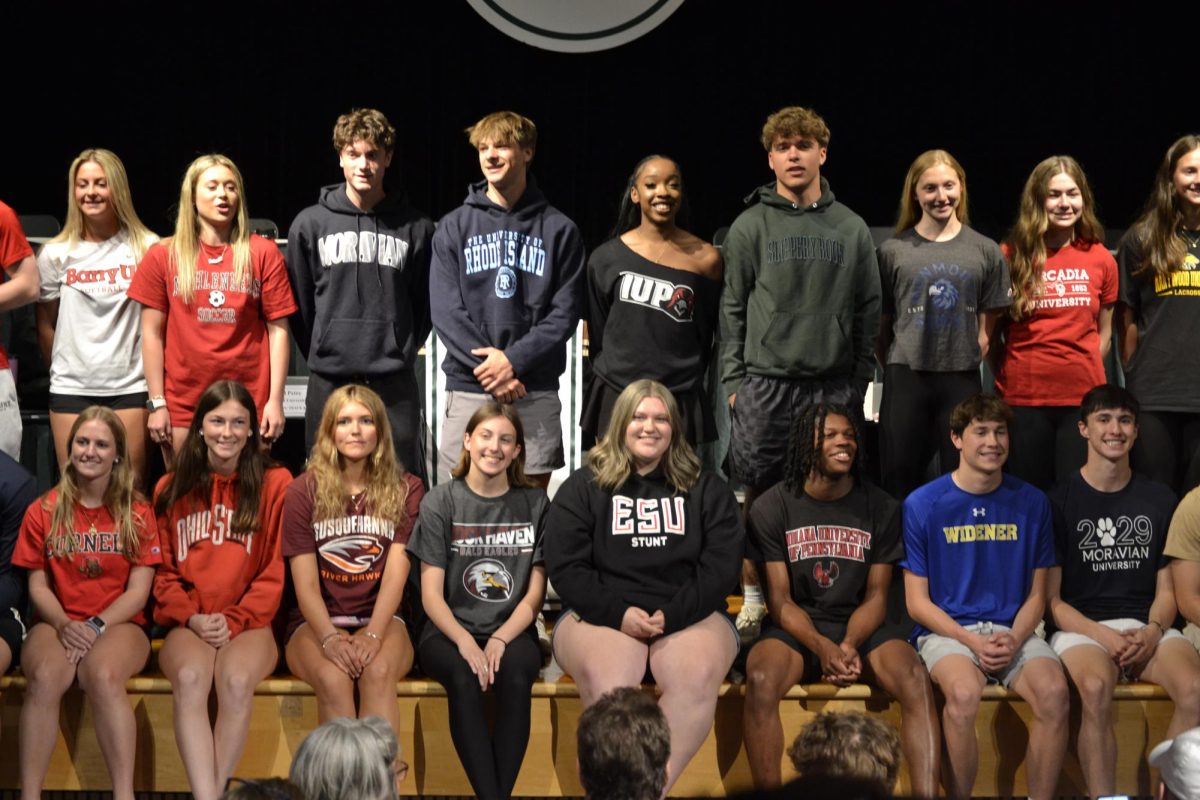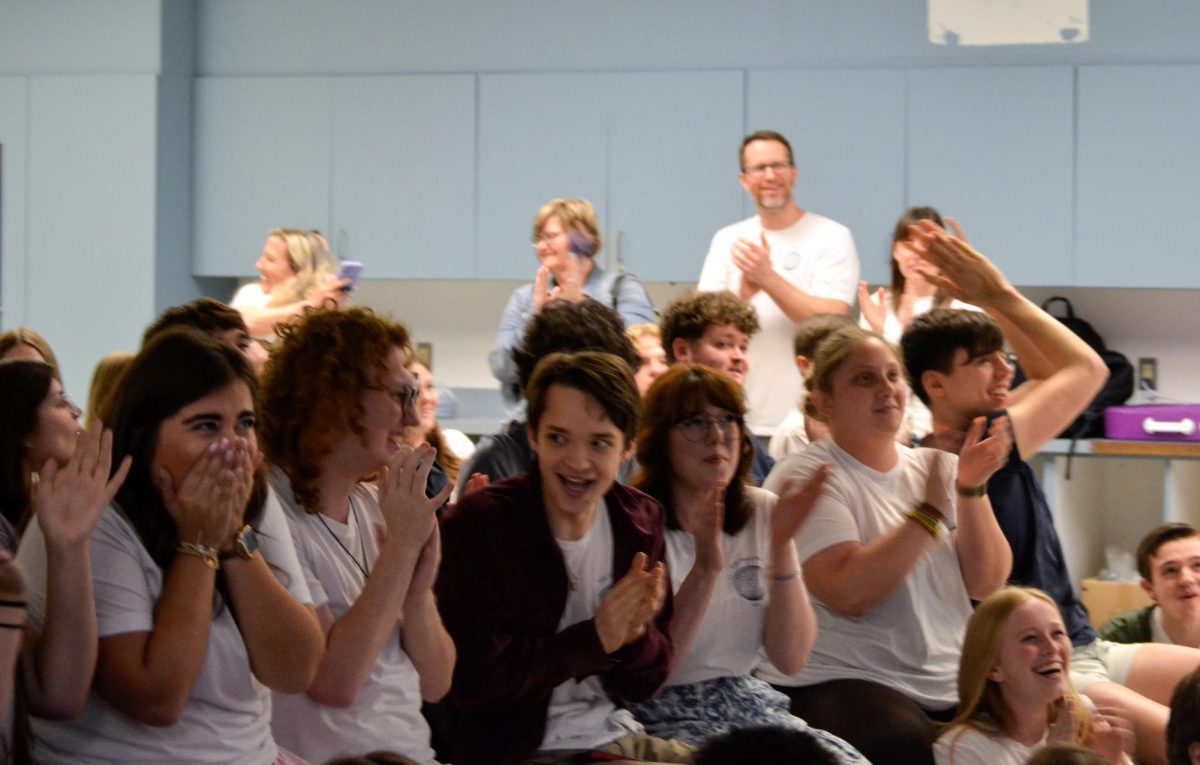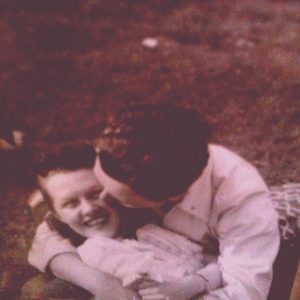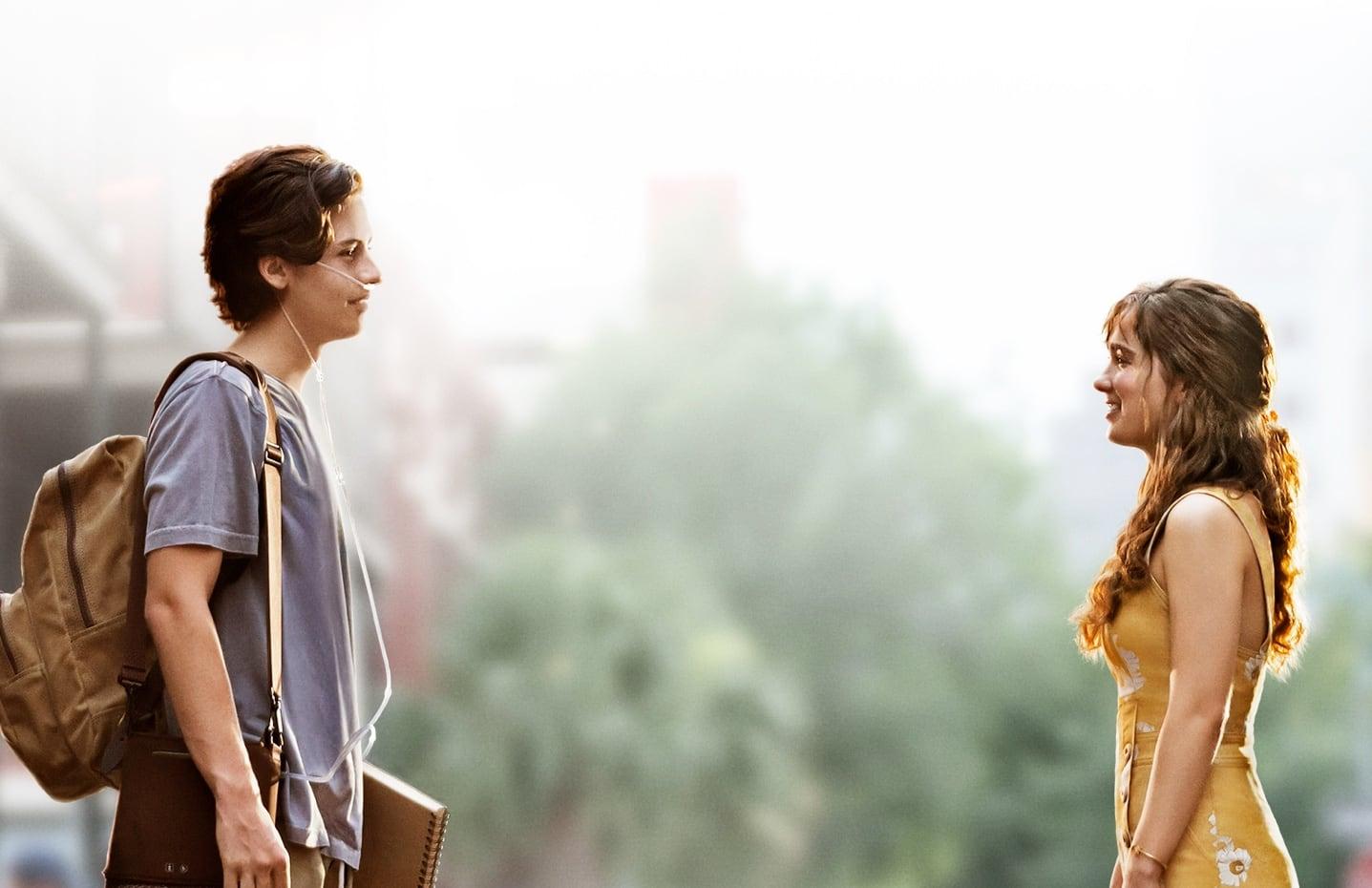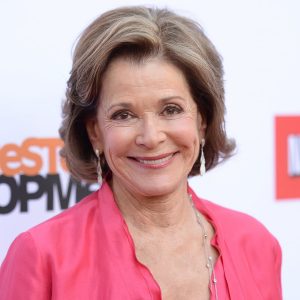Fighting for Change at EHS: How a black teen advocate works to create greater community
June 10, 2021
Walking through the halls of Emmaus High School, one can see students chatting in the locker commons, lining up along the hallways, and standing outside their classes getting ready for the day.
However, junior Sydne Clarke observes things a bit differently. She notices students sporting Confederate flags on shirts and hears offensive language from across the cafeteria.
In her own school, she is forced to weigh different options of how to react to seeing hurtful material right in front of her: speak her mind or stay silent. As an outspoken activist, Clarke has to choose how she is viewed by others in her response, feeling she has to pay close attention to her audience and surroundings rather than saying what she feels is right.
“I don’t like being complacent,” Clarke said. “But, I tread the line whether or not I want to be perceived as, you know, the angry ghetto black girl who is always so mad about racism… or should I be quiet and maintain how I’m perceived around my other white counterparts.”
Once she gets to class, Clarke finds herself feeling like there is something missing. She believes the EHS curriculum barely touches on topics regarding African-American history.
Still, she knew she wasn’t alone. Clarke didn’t want other students of color feeling like outsiders in their own school. After two years, Clarke found a solution to unite those who also didn’t know where to turn to: the Black Student Union.
“I’ve always just said I wish there could be a group or a club that kind of catered towards black students and other POC students for a safe space,” Clarke said. “So that’s when I was like, ‘I should make a Black Student Union.’ I tried for two years and finally got approved.”
With meetings every other week, the Black Student Union, or BSU, was founded to serve as a safe space for students of color to collaborate. As students enter the virtual meetings, they are welcomed with calming music and greetings, as Clarke makes sure members are comfortable before diving into heavy topics. They begin by covering current events and generating lively discussions regarding their opinions and thoughts on the subject. Whether the topics are local or nationwide, the BSU serves as a safe space for students of color to turn to to express their opinions without fear of judgement.
Joining together to talk about injustices and discrimination on a constant basis can take an emotional toll, but Clarke faces those challenges head on.
“It’s very difficult to talk about, but also I deal with that stuff already in my life,” Clarke said. “So it’s kind of at the point where you have been dealing with it for so long [that] you become emotionally numb to it in a sense, but it still doesn’t make it easier to talk about.”
With a desire to continue fighting, Clarke wanted to share her experiences with others. The Things They Carried, a story by Tim O’Brien, was one of her first steps onto a stage larger than the school.
For an English class assignment, Clarke had to mimic O’Brien’s writing style and create her own version of the story. After sharing it with the class and close friends, it was apparent that her story was moving, and had to be shared. Clarke turned to Vice Principal Greg Annoni, and with an enthusiastic response he encouraged Clarke to share the piece. He joined her with Bart Bailey, a prominent activist in the Emmaus community, who later would become the BSU advisor.
Bailey connected with Clarke’s writing, and decided to help her amplify her voice. From that point on, Bailey and Clarke began working together, as he recommended her to speak at a variety of events. Clarke has expanded her reach through numerous speeches and performances, including a first-prize win for an essay contest through the Association for the Study of African American Life and History, a group that promotes the education of black history. She recently spoke on a panel at the Diversity, Equity, and Inclusion summit, and was featured in a current episode of “Courageous Conversations” on PBS with fellow EHS student Madeleine Hess.
Clarke worked her way up to presenting speeches for New York Presbyterian Hospital’s Juneteenth event, an event promoting Black History 365— a textbook focused on sharing black history through the years, and a Women’s History Month event. In light of all of her work presenting speeches, Clarke has been showered with praise from the hospital, as they called her “the Amanda Gorman of New York Presbyterian.”
In late March, members of the hospital board surprised Clarke by joining one of her BSU meetings, presenting her with a plaque to honor her for the work she has done for the hospital through her speeches. Clarke claims that because she usually serves as the opening for a larger speaker, she was unsure if her speeches were truly resonating with her audience. Receiving this recognition was a turning point.
“There was a point where I’m like, ‘Is the stuff that I write, is it really penetrating?’” Clarke said. “It was not until that happened and I was like, ‘wow.’ Apparently people in the hospital were asking about [it], and not only from the hospital, people from the events themselves.”
As the Black Lives Matter movement gained traction in the summer of 2020, Clarke felt as if she could not stand by in the wake of these events, and had to raise her voice and speak up for what was right. Feeling “pent up,” Clarke made moves to do exactly that.
At a time when performative social media activism was taking over and Instagram stories of infographics were circulating daily, taking the time to educate yourself grew more important every day, according to Clarke. Trying to convey that activism should not just be a trend is a step towards truly making a change, and diving into the uncomfortable is a key factor to changing the mindset behind what “activism” has become on social media.
“You can’t start learning if you don’t have empathy, because what are you trying to learn for?” Clarke said. “The ways of the world in terms of social inequality–the truth of that may be very uncomfortable, and [you] might have to look yourself in the mirror and say: ‘Wow, am I indirectly contributing to this?’ Or, ‘Have I not been doing enough?’”
After discovering a program for black women who wanted to start podcasts, through Fempower Media, a female media production community, Clarke was finally able to launch her own, titled “She Talks White” on Oct. 16, 2020.
Clarke wanted to “create a community infiltrated in black girl love, joy, and candidness,” through her podcast according to the description. With season one fully released covering topics such as “What Even Are Microaggressions” in one episode and “I Hate Crushes” in another, Clarke talks openly about living as a black teenager in a predominantly white community.
With the conclusion of season one, Clarke hopes to release another season this summer. Burdened with a heavy school workload of AP classes and SATs, she wanted to make sure she could find the right time to “make quality episodes” rather than just pushing out content, while still trying to dedicate time to herself.

“Podcasting is a hobby, and I love to do it. I’m not getting any compensation for it, so I’m doing it because I genuinely want to, and I never want anything that I love to do to feel like a chore,” Clarke said.
While the creation of BSU was underway and Clarke continued advocating in the community, she was taking to the school board with fellow junior Olivia Pinocci-Wrightsman and following their shared passion for advocating for what they believe in.
In the beginning of their sophomore year, Pinocci-Wrightsman had just moved to Pennsylvania, and found herself sitting across the room from Clarke in their English class. After noticing Clarke’s computer background of Colin Kapernick, the two began talking about how he was inspiring to them. Eventually, the two built off of their shared interests and began working together to be outward voices in the school supporting one another through their endeavors.
“Her work inspires me every day… Seeing her accomplish these things that some people think are insurmountable at 17 helps me see that I can do it too and there’s an avenue for me to accomplish my goals,” Pinocci-Wrightsman said. “Her passion as well is so evident, and I think I’d like to think I have a similar level of passion, and seeing someone else continue to stay committed to the work, even when it is difficult sometimes, especially balancing all of it, helps me want to do the same.”
Clarke joined together with other EHS students to be a voice for change in the district, called the EPSD Coalition of Equality. Within this group, students spoke to the school board at various meetings, prompting them with certain “asks,” or different changes that they believed the district should implement. Their activism gained momentum, eventually leading members of the board to approach the Coalition of Equality in search of guidance moving forward with certain school policies, such as their equity plan implemented for the 2021 school year.
“We spoke at a few board meetings with certain asks, and I’m guessing since then, the more board meetings we spoke at, the more recognition we got,” Clarke said. “So I think after the third one that we did… we kind of made it clear that we’re not going away with what we have to say.”
Clarke and Pinocci-Wrightsman decided to run with their recognition, and encourage more students to get involved. The pair turned the EPSD Coalition of Equality into a new club, called Students Organizing Against Racism, or SOAR, focused on upholding the same idea of playing an active role in the community through action-based projects.
Being an activist is second nature to Clarke, but balancing her passion for her work with her daily life can be difficult, and leaves her feeling overwhelmed at times.
“When you hold a lot of leadership positions especially when you’re talking about certain, really potent, controversial issues… you feel as though you have a weight, and responsibility, and an obligation, and duty to uphold,” Clarke says.
Despite the struggles that her work may present to her, Clarke picks her head up and keeps moving forward, her drive leading her to do more and keep fighting for change.
“I don’t have the privilege to be complacent about any of the issues that we’re fighting for,” Clarke said. “I have to do something whether or not it’s on a big scale or small scale… it’s just my passion.”


